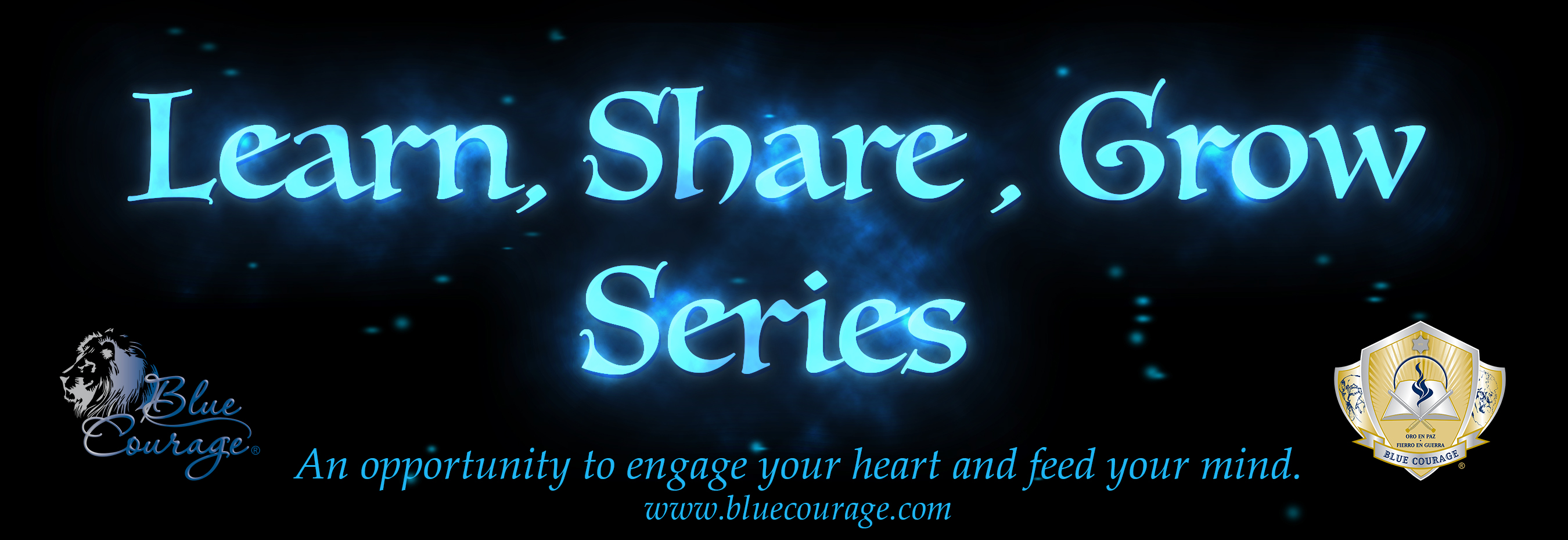Learn, Share, Grow - EQ Does Mean Putting Up With BS

January 31, 2022
Below is a lesson from Fast Company on emotional intelligence and dealing with toxic individuals, as well as our key learnings.
The Blue Courage team is dedicated to continual learning and growth. We have adopted a concept from Simon Sinek’s Start With Why team called “Learn, Share, Grow”. We are constantly finding great articles, videos, and readings that have so much learning. As we learn new and great things, this new knowledge should be shared for everyone to then grow from.
Why being emotionally intelligent doesn’t mean putting up with BS
This executive coach warns against what he calls ‘paralysis by politeness.’ Strong leaders with a honed EQ can be both empathetic and ruthlessly decisive.
BY DAVID M. M. TAFFET 5 MINUTE READ
In my experience as a consultant who has transformed 16 companies, and as an entrepreneur who has built or bought almost as many of my own enterprises, I’ve learned that managers and leaders often miss one crucial point about emotional intelligence (“EQ”): EQ requires intolerance for the intolerable just as much as it requires empathy.
Daniel Goleman writes in Working with Emotional Intelligence, “. . . [E]motional intelligence does not mean merely ‘being nice.’ At strategic moments, it may demand not ‘being nice,’ but rather, for example, bluntly confronting someone with an uncomfortable but consequential truth they’ve been avoiding.” This is difficult and uncomfortable work that contradicts a key learning absorbed by most of us as children: that being kind and agreeable is socially rewarding. The narcissist might get to the top of the food chain by being bullish and conflict-prone, but no one actually likes that person.
As recent political trends have heightened our sensitivity to the destructive power of narcissistic leaders in government and business, empathy has become something of an antidote to the times. It can bring about mutual understanding, greater self-awareness, more inclusive leadership, and a more just organization. The problem is that empathy and agreeableness are often conflated, which diminishes EQ by weighing it down with toxic positivity. This only emboldens the toxic actor who preys on kindness (something I’ve witnessed countless times over the past three decades).
Continue Reading Here.
Key Learnings:
- Emotional intelligence (EQ) requires intolerance for the intolerable just as much as it requires empathy.
- EQ does not mean merely being nice and may demand not being nice. Bluntly confronting someone with an uncomfortable but consequential truths that they’ve been avoiding is an example.
-
Toxicity cannot be killed with Kindness
-
Great leaders and organization combat toxicity.
-
The inaction to combat toxicity demoralizes the rest of the team who knows what needs to happen.
-
When someone is toxic, the failure is that we haven’t put in adequate work to rehabilitate the offender. We haven’t set them up with success.
-
Being neutral or having tolerance only serves to underwrite it, not resist it. It privileges toxic individuals and empowers them. You knowingly allow them to harm your organization.
-
In an effort to be empathetic and police we often fail to find our conviction and our true voice — we are paralyzed by politeness.
-
Effective communication arises from your core truth. Polite communication incentivizes better behavior with niceties that toxic individuals are immune.
-
Find your conviction and speak from it with honestly in a manner that commands respect and conveys consequences.
-
Sometimes compassion requires doing difficult things.
-
Properly deployed, EQ should serve as a tool for discernment and provocation when appropriate.
Stay connected with news and updates!
Join our mailing list to receive the latest news and updates from our team.
Don't worry, your information will not be shared.
We hate SPAM. We will never sell your information, for any reason.

